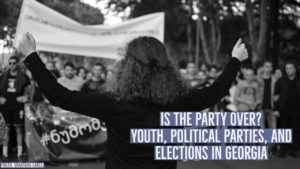The U.S. House of Representatives has passed the Georgia Support Act, HR 6219, reasserting the United States’ support for its sovereignty and opposition to the forceful and illegal Russian invasion of Abkhazia and Tskhinvali region/South Ossetia.
The Act asserts the necessity of appropriate assistance ‘to improve its cybersecurity’ and ‘to enhance the capabilities of Georgia to combat Russian disinformation and propaganda campaigns intended to undermine the sovereignty and democratic institutions of the country, while promoting the freedom of the press,’ notes Democracy & Freedom Watch.
While updating the new edition of my book, The Caucasus: An Introduction, with a new chapter after almost a decade, one theme stood out: the legacy of the Soviet Union is gradually leaving the region, along with the influence of Russia, notes Thomas de Waal, a senior fellow with Carnegie Europe, specializing in Eastern Europe and the Caucasus region:
Russian language use is declining (two thirds of Azerbaijanis now report only basic knowledge of the language). Russian television viewership has declined precipitately. Ethnic Russians comprise no more than two or three percent of the population of the three countries. Russia itself is still the most powerful neighbor for Armenia, Azerbaijan, and Georgia, but increasingly it is one of many.
 The recent election revealed a worrying development in Georgian politics: the widening gap between political parties and young people. Georgian political parties tend to be vehicles for a particular charismatic personality and tend emerge and disappear within a few years’ time.
The recent election revealed a worrying development in Georgian politics: the widening gap between political parties and young people. Georgian political parties tend to be vehicles for a particular charismatic personality and tend emerge and disappear within a few years’ time.
In a recent presentation (above), civil society activist Vera Gogokhia discussed the role of youth in the recent Georgian elections, the roots of the current disconnect between political parties and young people, and whether the gap can be bridged. Comments by Miriam Lanskoy, Senior Director for Russia and Eurasia, National Endowment for Democracy follow.







